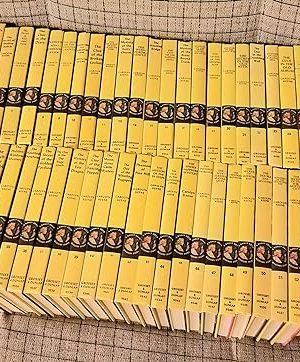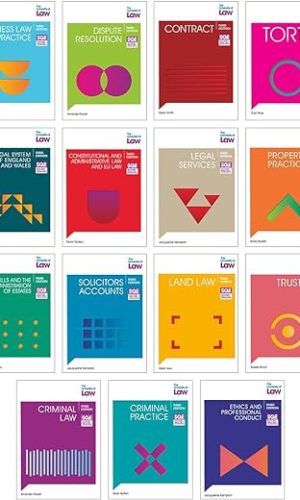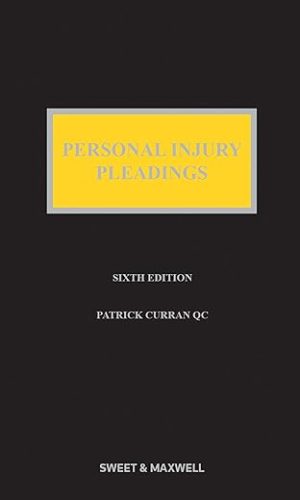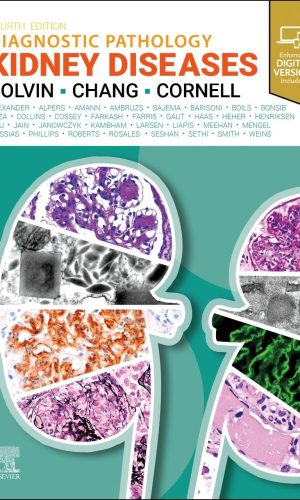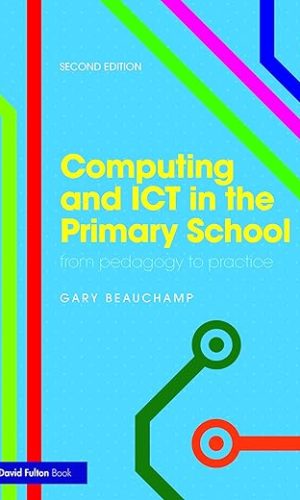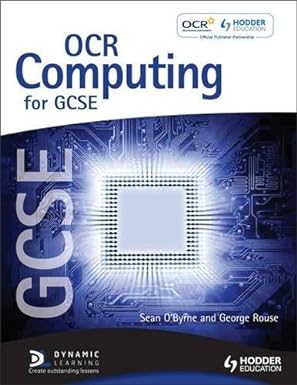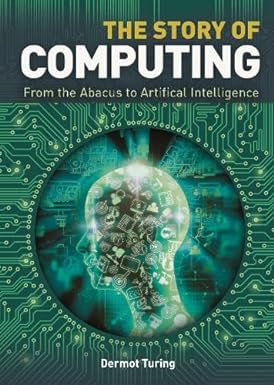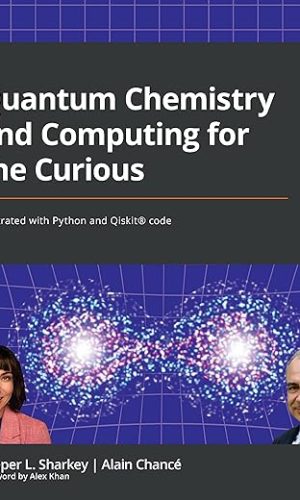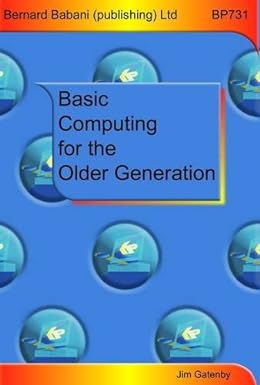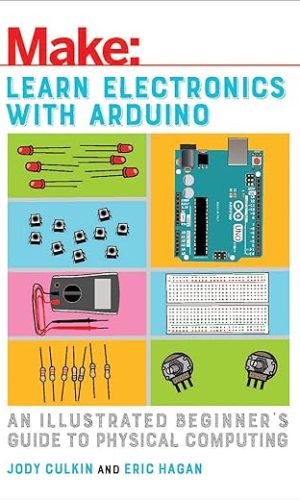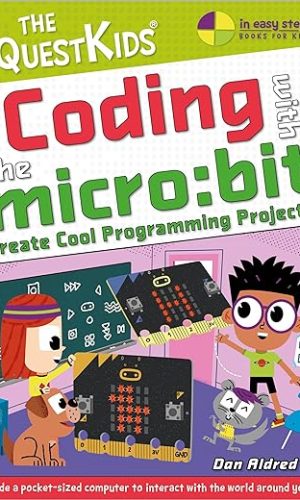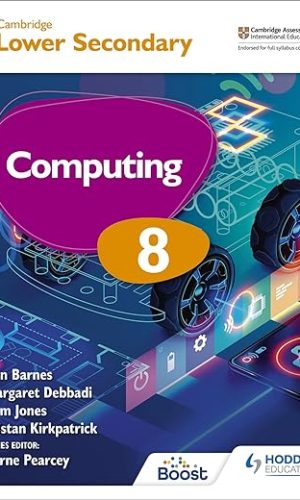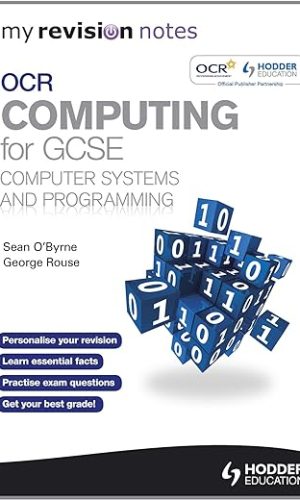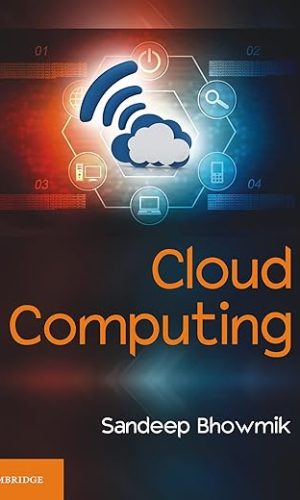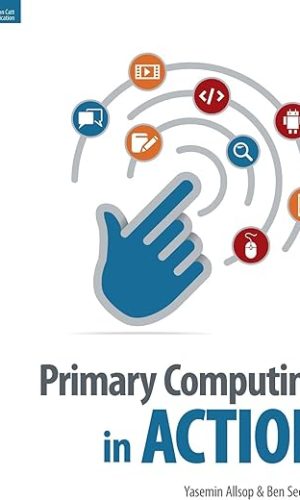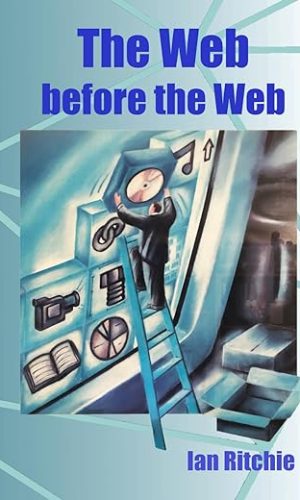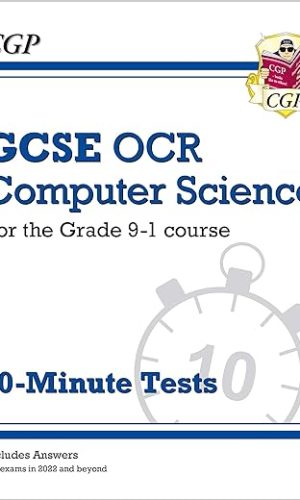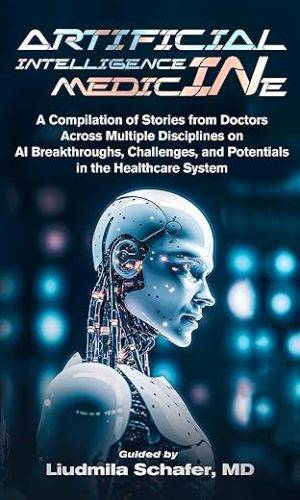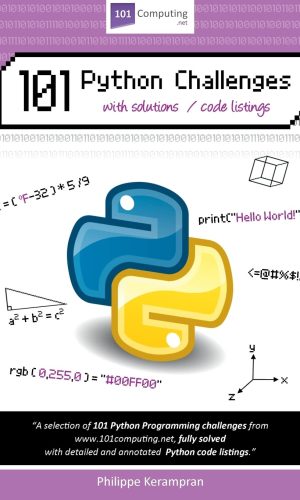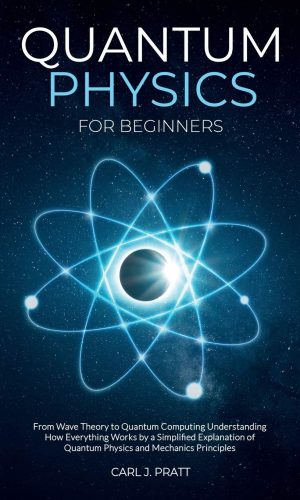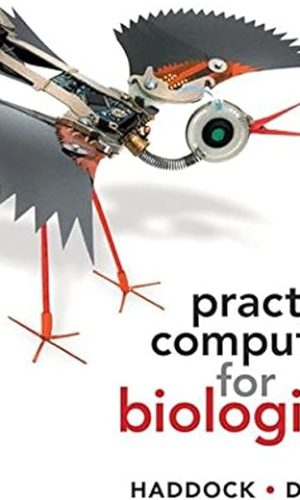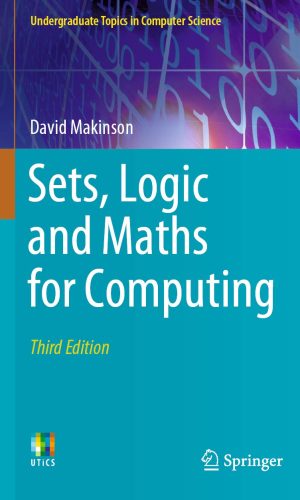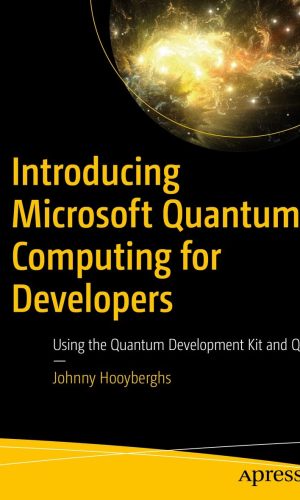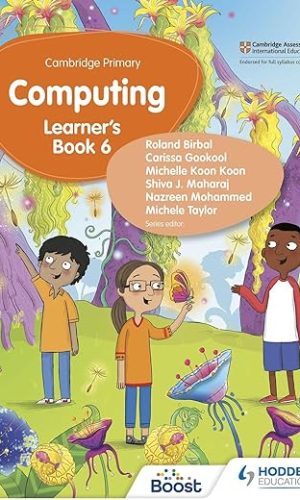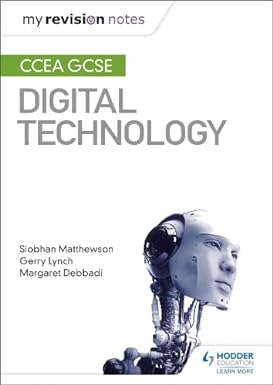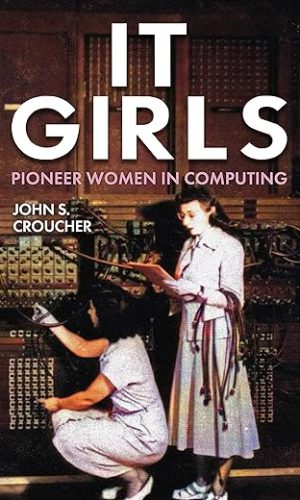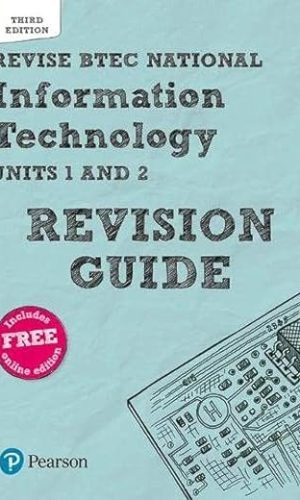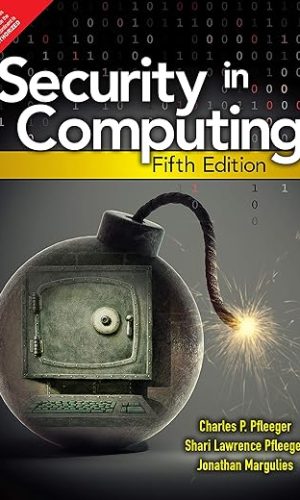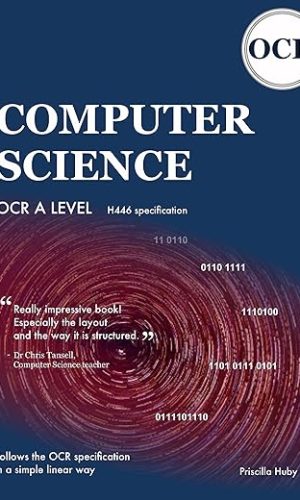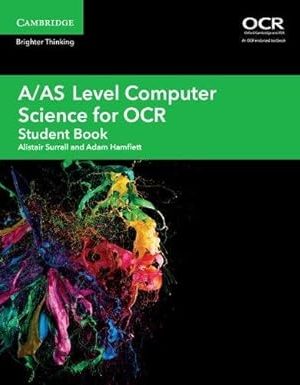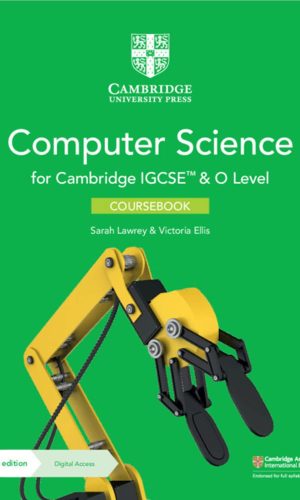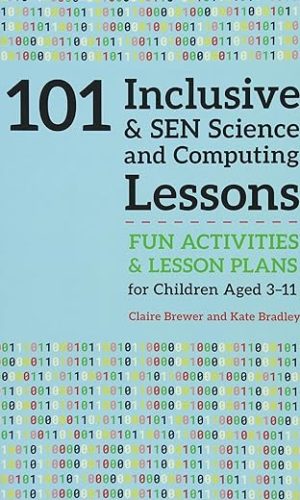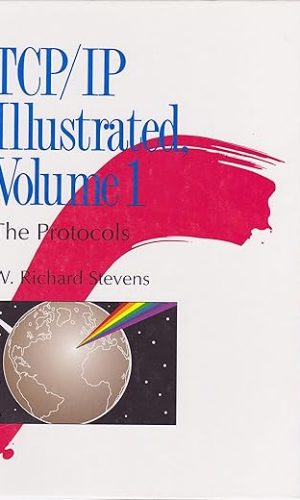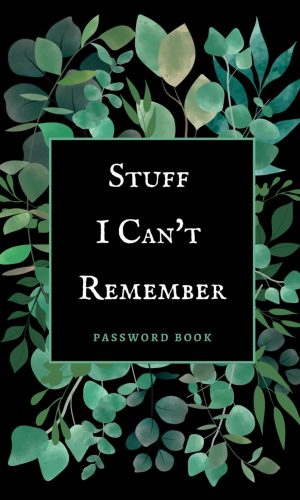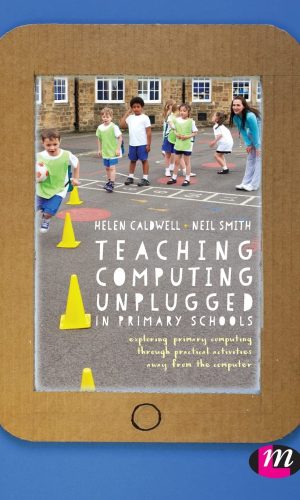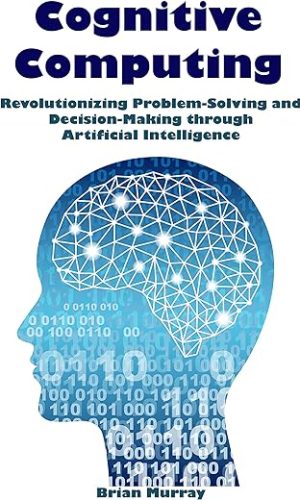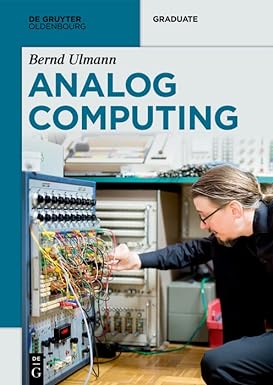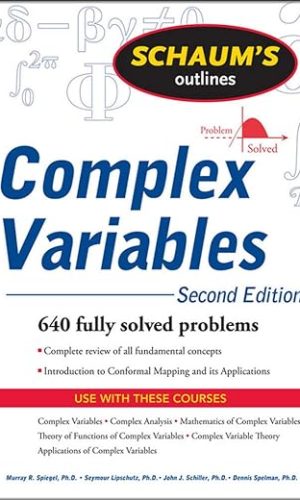Recommended Items
-
LA Woman
Estevan Oriol is hailed as the eye of the new wave Latino aesthetic. Coming up from the streets and the Hip Hop scene, his rough and ready images of his neighborhood homies caught the attention of major media and music players. Oriol has since been commissioned by Nike and Cadillac, as well as directing music videos for Eminem, Linkin Park, D12 and Xzibit. He began taking pictures of his neighborhood and low-rider culture and soon discovered his incredible talent for capturing raw street life. He is now one of the most sought after photographers in the urban community.Read more
£543.90LA Woman
£543.90 -
Nancy Drew Complete Set 1-56 (Nancy Drew Mystery Stories)
Nancy Drew Hardcover Set 1-56 HardcoverRead more
£539.81 -
SQE Bundle FLK 1 & 2: 3e (SQE1)
The Law & Professional Practice (FLK1 & FLK2) bundle contains all 15 study manuals that have been specially collated to focus on the Law area of the Solicitors Regulation Authority (SRA) syllabus for the Solicitors Qualifying Examination (SQE1) in a concise and tightly focused manner.
Published and updated regularly, these user-friendly study manuals are designed to help you successfully prepare for the SQE1 exams. They provide solid knowledge and understanding of fundamental legal principles and rules, while bringing the law and practice to life with example scenarios based on realistic client problems.
Each title is complemented by worked examples and sample assessment questions that enable you to test your knowledge and understanding through single best answer questions that have been modelled on the SRA’s sample assessment questions.
For students at The University of Law, the study manuals are used alongside other learning resources and the University’s assessment bank to prepare students not only for the SQE1 exams, but also for a future life in professional legal practice.
The legal principles and rules contained within this study manual are stated as at 1 April 2023 (titles with tax elements to 30 April 2023)
Titles included in this bundle:
- Business Law and Practice
- Dispute Resolution
- Contract
- Tort
- Legal System of England and Wales
- Constitutional and Administrative Law and EU Law
- Legal Services
- Property Practice
- Wills and the Administration of Estates
- Solicitors Accounts
- Land Law
- Trusts
- Criminal Law
- Criminal Practice
- Ethics and Professional Conduct
Read more
£407.80£455.90SQE Bundle FLK 1 & 2: 3e (SQE1)
£407.80£455.90 -
Personal Injury Pleadings
Personal Injury Pleadings is the authoritative stand-alone source to assist the professional draftsman settling claimants and defendants statements of case. The sixth edition deals with contemporary challenges in litigation as diverse and demanding as the requirements for pleadings in fundamentally dishonest QOCS cases; relief from sanctions applications; cases involving foreign travel; the consequences of BREXIT in Personal Injury litigation; post-ERRA pleadings requirements as to breach of statutory duty; and much more. It provides informed, accurate, in-depth model pleadings, covering the whole gamut of personal injury work, drawn from many years practical experience of real cases. Comprehensive subject coverage is combined with up-to-date informed analysis of recent case law, legislation and subordinate legislation, changes in the Civil Procedure Rules, costs issues, and the minutiae of troublesome practical problems such as the special difficulties involved in fatal accident and late-onset terminal disease claims.Read more
£248.00Personal Injury Pleadings
£248.00 -
Tolley’s Health & Safety at Work Handbook 2022
This essential title provides an authoritative reference source covering key aspects of health and safety law and practice. Adopting a user-friendly A-Z format, the handbook presents clear narrative on the latest legislative changes, how to comply with current law and practice, and how they affect the role of the health and safety manager. Leading experts in health and safety offer insight and guidance on a range of subjects, from accident reporting, welfare facilities, mental ill-health, an aging workforce, absenteeism, travel safety and personal safety. This essential handbook also provides an authoritative reference source covering key aspects of health and safety law and practice, as well as related environmental and employment information. Updated annually, this title fully equips busy practitioners with everything to deal with day-to-day issues quickly.Read more
£237.50 -
Diagnostic Pathology: Kidney Diseases
This expert volume in the Diagnostic Pathology series is an excellent point-of-care resource for practitioners at all levels of experience and training. Covering the full range of common and rare nonneoplastic renal diseases, it incorporates the most recent scientific and technical knowledge in the field to provide a comprehensive overview of all key issues relevant to today’s practice. Richly illustrated and easy to use, Diagnostic Pathology: Kidney Diseases, fourth edition, is a visually stunning, one-stop resource for every practicing pathologist, nephrologist, resident, student, or fellow as an ideal day-to-day reference or as a reliable training resource.-
Provides a comprehensive source for key pathologies and clinical features of more than 265 kidney diseases
-
Features two dozen new chapters on a variety of timely topics, including COVID-19 nephropathies, xenografts, artificial intelligence (AI), digital pathology analysis, harmonized nephropathology terminology, newly identified types of amyloidosis, common artifacts and pitfalls on kidney biopsy, vaccination-associated renal disease, crystal nephropathies, and much more
-
Includes updates from the International Kidney and Monoclonal Gammopathy (IKMG) research group, the American College of Rheumatology/European League Against Rheumatism (ACR/EULAR) classification criteria for IgG4-related disease, Banff Foundation for Allograft Pathology, and others
-
Details updated genetic causes of nephrotic syndromes and antinephrin antibodies in podocytopathies-by the investigator who discovered it
-
Discusses the newly identified variant IgG nephropathy and novel membranous autoantigens
-
Contains chapters on techniques, including immunofluorescence on paraffin sections, C4d staining, and polyomavirus detection in tissue
-
Contains more than 4,300 print and online images, including high-resolution photographs and histologic images, full-color medical illustrations, radiologic images, and more
-
Employs consistently templated chapters, bulleted content, key facts, a variety of tables, annotated images, pertinent references, and an extensive index for quick, expert reference at the point of care
-
Shares the expertise of internationally recognized authors who provide fresh perspectives on multiple topics, with a particular emphasis on practical information that directly assists in making and supporting a diagnosis
-
Includes an eBook version that enables you to access all text, figures, and references, with the ability to search, customize your content, make notes and highlights, and have content read aloud
Read more
£220.70£237.50Diagnostic Pathology: Kidney Diseases
£220.70£237.50 -
-
Handbook of Conspiracy Theory and Contemporary Religion: 17 (Brill Handbooks on Contemporary Religion)
The Handbook of Conspiracy Theories and Contemporary Religion is the first collection to offer a comprehensive overview of conspiracy theories and their relationship with religion(s), taking a global and interdisciplinary perspective.Read more
£195.40
-
Get Set Go: Computing Digital Skills
Easy-to-follow, practical activities help young learners get to grips with computing. Written by Dr Tracy Gardner and Elbrie de Kock of Tech Age Kids, the activities in this book help to develop digital literacy learning to do useful things with computers as well as how to plan screentime and stay safe online. Lively illustrations keep readers engaged and wipeclean pages mean the activities can be repeated again and again.Read more
£3.80 -
Computing and ICT in the Primary School: From pedagogy to practice
Now fully updated to reflect recent changes in the curriculum, Computing and ICT in the Primary School encourages teachers, and pupils, to realise the potential of a full range of ICT and computing resources.
Tackling computing head on, this book enables trainee and experienced teachers to better understand what computing is and how to use ICT effectively in teaching and learning. It is not a ‘how to’ guide or a collection of lesson plans, but instead balances research-based theory with everyday experiences, challenging readers to understand teaching methods and how they translate into a range of suitable teaching and learning strategies using ICT.
This book offers primary teachers the knowledge, skills and confidence to plan, teach and assess creatively to enhance learning across the whole curriculum. This second edition includes updates of all chapters and completely new chapters on:
• mobile technologies
• social media, and
• modern foreign languages.
Gary Beauchamp places theory and practice hand in hand, providing a uniquely relatable resource based on his own teaching practice, classroom experience and research. This text is crucial reading for both serving teachers and those in training on undergraduate and PGCE courses, Education Studies courses and MA (Ed) programmes.
Read more
£27.40 -
OCR Computing for GCSE
OCR Computing for GCSE adopts an approach that provides comprehensive coverage of the specification, providing a cohesive and fully contextualised guide through the key content and skills demanded by all aspects of the course
– Develops students understanding of the theoretical aspects of the course and the skills they need to display in the exam
– Provides strategies for teachers and students for tackling the practical elements of the course
– Covers the key aspects of planning, developing, testing, and re-evaluating and modifying solutions for the practial investigation
– Supports students as they develop the skills to demonstrate programming techniques including designing a coded solution to a problem, creating a coded solution and testing a solutionRead more
£2.80OCR Computing for GCSE
£2.80 -
The Story of Computing
Today computers shape every aspect of our lives. In our pockets, we carry mobile phones with computing power that was unimaginable just 50 years ago. Many industries are embracing the promises – and the risks – of artificial intelligence. The world is changing faster than ever, and computing is at the heart of technological development.
Dermot Turing explores the history of this rapidly evolving technology, from the Charles Babbage and his experiments with steam powered calculators to the computerised Go champion, AlphaGo. Featuring wonderful, full-colour images which illustrate this history, The Story of Computing is the essential guide to a subject that none of us can ignore.
Topics include:
• The birth of the computer
• Codebreaking in World War II
• Innovations in hardware and software
• Artificial intelligence
• The internet
• The challenges of cybersecurity.Read more
£8.70£9.50The Story of Computing
£8.70£9.50 -
Quantum Chemistry and Computing for the Curious: Illustrated with Python and Qiskit® code
Acquire knowledge of quantum chemistry concepts, the postulates of quantum mechanics, and the foundations of quantum computing, and execute illustrations made with Python code, Qiskit, and open-source quantum chemistry packages
Key Features
- Be at the forefront of a quest for increased accuracy in chemistry applications and computing
- Get familiar with some open source quantum chemistry packages to run your own experiments
- Develop awareness of computational chemistry problems by using postulates of quantum mechanics
Book Description
Explore quantum chemical concepts and the postulates of quantum mechanics in a modern fashion, with the intent to see how chemistry and computing intertwine. Along the way you’ll relate these concepts to quantum information theory and computation. We build a framework of computational tools that lead you through traditional computational methods and straight to the forefront of exciting opportunities. These opportunities will rely on achieving next-generation accuracy by going further than the standard approximations such as beyond Born-Oppenheimer calculations.
Discover how leveraging quantum chemistry and computing is a key enabler for overcoming major challenges in the broader chemical industry. The skills that you will learn can be utilized to solve new-age business needs that specifically hinge on quantum chemistry
What you will learn
- Understand mathematical properties of the building blocks of matter
- Run through the principles of quantum mechanics with illustrations
- Design quantum gate circuit computations
- Program in open-source chemistry software packages such as Qiskit®
- Execute state-of-the-art-chemistry calculations and simulations
- Run companion Jupyter notebooks on the cloud with just a web browser
- Explain standard approximations in chemical simulations
Who this book is for
Professionals interested in chemistry and computer science at the early stages of learning, or interested in a career of quantum computational chemistry and quantum computing, including advanced high school and college students. Helpful to have high school level chemistry, mathematics (algebra), and programming. An introductory level of understanding Python is sufficient to read the code presented to illustrate quantum chemistry and computing
Table of Contents
- Introduction
- Postulates of quantum mechanics
- Quantum circuit model of computation
- Molecular Hamiltonians
- Variational Quantum Eigensolver (VQE) algorithm
- Beyond Born-Oppenheimer
- Conclusion
- References
- Glossary
Read more
£23.70 -
Basic Computing for the Older Generation
Basic Computing for the Older GenerationRead more
£8.60£9.50Basic Computing for the Older Generation
£8.60£9.50 -
Learn Electronics with Arduino: An Illustrated Beginner’s Guide to Physical Computing (Make: Technology on Your Time)
This book is your introduction to to physical computing with the Arduino microcontroller platform. No prior experience is required, not even an understanding of basic electronics. With color illustrations, easy-to-follow explanations, and step-by-step instructions, the book takes the beginner from building simple circuits on a breadboard to setting up the Arduino IDE and downloading and writing sketches to run on the Arduino. Readers will be introduced to basic electronics theory and programming concepts, as well as to digital and analog inputs and outputs. Throughout the book, debugging practices are highlighted, so novices will know what to do if their circuits or their code doesn’t work for the current project and those that they embark on later for themselves. After completing the projects in this book, readers will have a firm basis for building their own projects with the Arduino. Written for absolute beginners with no prior knowledge of electronics or programming Filled with detailed full-color illustrations that make concepts and procedures easy to follow An accessible introduction to microcontrollers and physical computing Step-by-step instructions for projects that teach fundamental skills Includes a variety of Arduino-based projects using digital and analog input and outputRead more
£16.70£19.00 -
Coding with the micro:bit – Create Cool Programming Projects (The QuestKids – In Easy Steps)
First, Coding with micro:bit introduces you to the hardware and software features of the BBC micro:bit, including the built-in microphone, speaker, and touch sensor added in micro:bit version 2. You’ll learn new skills such as how to code your micro:bit to play music, send messages, display pictures, and detect light.
- Getting started: This section gives you a tour of the micro:bit and gets you started with coding your first program.
- Basics: Here, you’ll learn to display images and text on the micro:bit’s LED grid.
- Inputs:: This section shows you how to work with the input systems on the micro:bit, like the buttons, the accelerometer, and the light sensor.
Once you’ve mastered these skills, the book guides you through 10 exciting projects, including a temperature sensor, simple interactive games, and even an alarm system!
- The 99 game: This first project is a game of chance that involves throwing the micro:bit among a group of people. You’ll learn more about coding, like using variables and control flow techniques.
- Heads or tails: In this project, you’ll use the LED grid and accelerometer to create a “coin toss” generator that detects when you flip your micro:bit, and displays heads or tails.
- Steady hand game: This game challenges you to hold your micro:bit in your hand as long as you can without wobbling. You’ll also learn more about the micro:bit’s abilities and other fundamental coding techniques.
- Temperature display: Here, you’ll use the micro:bit’s built-in temperature sensor to detect the temperature and scroll it across the LED grid.
- LED control: In this project, you’ll learn how to wire up an external LED and control it with code. This exercise teaches you about using the micro:bit with other components so you can build even bigger projects.
- Trespasser alarm: By connecting a speaker to your micro:bit, you’ll create an alarm system that detects when someone has broken into your room and alerts you by playing a tune.
- Fortune teller: This project ramps up the coding complexity, showing you how to program your micro:bit to tell your fortune just like a Magic 8-Ball!
- Compass: Here, you’ll turn the micro:bit into a real working compass using its built-in magnetometer.
- Radio communication: In this project you’ll use two micro:bits to send and receive radio messages.
- Bag alarm: Using your radio skills from the previous project combined with the accelerometer, you’ll build a bag alarm with two micro:bits. The first micro:bit stays inside your bag and alerts a second micro:bit in your pocket if someone tries to steal your bag.
Each project has been designed to work with both versions of the micro:bit.
You’ll find “Try This” sections that suggest other ways for you to try out your new knowledge. These ideas will inspire you to build your own projects with the micro:bit.
So whether you’re a coding newbie, or you think you know it all, grab your micro:bit and let’s get coding!
Read more
£13.10£14.20 -
Cambridge Lower Secondary Computing 8 Student’s Book
This title has been endorsed by Cambridge Assessment International Education.
Deliver an exciting computing course for ages 11-14, building on students’ existing computing skills and experience whilst demonstrating new concepts, with practice opportunities to ensure progression.
– Recap and activate students’ prior knowledge with ‘Do you remember?’ panels and introduce more advanced skills with ‘Challenge yourself!’ tasks.
– Allow students to demonstrate their knowledge creatively with engaging end of unit projects that apply skills and concepts in a range of different contexts.
– Develop computational thinking with an emphasis on broadening understanding throughout the activities.
– Provide clear guidance on e-safety with a strong focus throughout.Contents
Introduction
1 TeenTech: Network structure and security
2 It’s all in the planning: Pseudocode and algorithms
3 Let’s talk technology: What’s going on inside
4 Testing conditions: Developing games
5 Click and collect: Data collection and validation
6 Iterating through a solution: software design and development
Glossary
IndexRead more
£12.30 -
My Revision Notes OCR Computing for GCSE Computer Systems and Programming
With My Revision Notes for OCR Computing for GCSE, which perfectly matches the theory units of the specification, you can:– Take control of your revision: plan and focus on the areas you need to revise, with advice, summaries and notes from authors Sean O’Byrne and George Rouse
– Show you fully understand key topics, by using specific case studies to add depth to your knowledge of computing issues and processes
– Apply computing terms accurately with the help of definitions and key words on all topics
– Improve your skills to tackle specific exam questions with the help of self-testing and exam-style questions and answers
Read more
£2.70 -
Cloud Computing
Written in a tutorial style, this comprehensive guide follows a structured approach explaining cloud techniques, models and platforms. Popular cloud services such as Amazon, Google and Microsoft Azure are explained in the text. The security risks and challenges of cloud computing are discussed in detail with useful examples. Emerging trends including mobile cloud computing and internet of things are discussed in the book for the benefit of the readers. Numerous review questions, multiple choice exercises and case studies facilitate enhanced understanding. This textbook is ideal for undergraduate and graduate students of computer science engineering, and information technology.Read more
£36.70Cloud Computing
£36.70 -
Primary Computing in Action
Presenting practical ideas that support teachers and trainees with the planning, implementation and assessment of the 2014 Primary Computing Curriculum. Demonstrating how freely available apps and web-based applications, programmes for PCs and Macs, can be used creatively to design innovative and engaging activities in the Early Years, Key Stages 1 and 2. Covering all aspects of the 2014 primary curriculum, including computer science, digital literacy and information technology. Includes both plugged and unplugged activities.Read more
£8.10 -
The Web before the Web: Putting the Hype into Hypertext
In the mid-1970s, the personal computer began to
completely revolutionise the world of information technology,
creating a unique opportunity for those of us in that industry to
invent a different type of computing experience.Over the next twenty years this innovative new world of personal
computing was constructed. New applications were being invented
for the first time – and were being widely welcomed.By the mid-90s, the basic applications of personal computing had
been determined, the internet and the World Wide Web had been
established, enabling what we now recognise as the environment
of modern communications and information publishing.This book describes these 20 years when today’s information
world was being invented for the first time; from the perspective
of the developers of online interactive documents, hypertext,
the technology on which the World Wide Web is based.The World Wide Web has now become the platform on
which the modern information world is built: communications,
publishing, commerce, and broadcasting are all enabled by this
revolutionary technology.The Web before the Web describes our part in pioneering hypertext,
the technology behind this phenomenon.Read more
£9.50 -
GCSE Computer Science OCR 10-Minute Tests (includes answers): for the 2024 and 2025 exams (CGP OCR GCSE Computer Science)
Quick bite-sized practice for the 2024 and 2025 exams. From CGP – the GCSE experts!
These fantastic CGP 10-Minute Tests are ideal for students preparing for the Grade 9-1 OCR GCSE Computer Science exams! The book contains thirty bite-sized tests covering every topic they need to know, including some mixed practice – ideal for confidence building! There are also answers and mark schemes at the back, along with a handy progress chart. Don’t miss CGP’s brilliant OCR GCSE Computer Science Revision Guide (9781789085563) for complete study notes.
Read more
£5.20 -
Artificial Intelligence in Medicine: A Compilation of Stories from Doctors Across Multiple Disciplines on AI Breakthroughs, Challenges, and Potentials in the Healthcare System
Artificial Intelligence in Medicine will show you fresh perspectives on healthcare transformation in patient care, investment strategies, innovative leadership approaches, potential startup opportunities, avenues for job creation, and collaborative prospects that can amplify passion, personal evolution, and professional development.This book is about real-world experiences, personal stories, and visions written by 15 physicians across multiple specialties that sheds light on the unseen intricacies of artificial intelligence, machine learning, robotics, natural language processing, and its ethics in healthcare.
Readers will look behind the scenes in each medical specialty to understand what really happens when they or their loved ones interact with the healthcare system–when they see a doctor, are admitted to the hospital, come for treatment, or face restrictions and protections related to public or occupational health.
Doctors from obstetrics/gynecology, rheumatology, hematology, oncology, gastroenterology, anesthesiology, emergency medicine, psychiatry, public health, occupational medicine, internal medicine, pathology, dermatopathology, plastic surgery, hospitalists, clinical trialists, researchers, and entrepreneurs review future applications of AI relevant to their specialty.
This book is for those who seek inspiration, vision, options for investments in different medical disciplines, and a deeper understanding of change and hope through the alignment of humans and machines.
The future of healthcare isn’t man versus machine; it’s man and machine together in a symphony of healing.
Author and Guided by:
Liudmila Schafer, MD, FACP, medical oncologist
Authors
Denise Koh, BSc, MD, CCFP, MPH, FRCPC, ACBOM, public and occupational health specialist
Naga K Sucharita Cheedella, MBBS, medical oncologist, early-phase clinical trialist
Danica Q. Pruett, MD, CMQ, anesthesiologist
Laura Fortner, MD, obstetrician/gynecologist
Zeba Faroqui, MD, rheumatologist
Candice Williams, MD, DBA, anesthesiologist, pain medicine specialist
Gigi Abdel-Samed, MD, emergency medicine specialist
Tatyana Reznik, MD, FACP, DipABLM, internal medicine, hospitalist, lifestyle medicine
Swapna Vaidya, MD, psychiatrist
Sharon T McLaughlin, MD, FACS, plastic surgeon
Radha Mikkilineni, MD, MSc, dermatologist, dermatopathologist
Susana Santos, DO, emergency medicine
Ammu Thampi Susheela, MD, internal medicine
Jasmin Hundal, M.D, MS, MPH, hematologist-oncologistRead more
£0.80 -
101 Python Challenges with Solutions / Code Listings
This selection of 101 Python programming challenges is targeted at both learners and educators who want to find a challenging and enthusing approach to develop their programming skills using Python. In this book you will find a fully working solution to each of the 101 challenges in the form of annotated Python code listings. We believe that being able to work on these challenges and reverse-engineer the given code will give you a fantastic opportunity to improve your Python skills while discovering new programing techniques. This selection of challenges from the 101computing.net blog will cover all of the essential skills used in procedural programming, focusing on the key programming constructs: sequencing, selection and iteration. The 101 challenges are organised into ten chapters to help you discover and practise using a range of programming strategies using a step by step approach.Read more
£20.00 -
Quantum physics and mechanics for beginners: From Wave Theory to Quantum Computing. Understanding How Everything Works by a Simplified Explanation of … and Mechanics…
Do you want to know the principles that govern everything around you? Have you always been curious about quantum physics and its mysteries but you don’t know where to begin?
You have found the right place, your journey to learn quantum physics starts now!
In this book you will find:
- What quantum physics is, the history and most famous experiments and achievements in quantum mechanics.
- Wave-particle duality dilemma.
- Heisenberg uncertainty principle.
- Schrodinger’s equation.
- Quantum fields theory.
- Introduction to string theory.
- Real-world applications: Quantum computing, Quantum key distribution…
And much more!
Even if this is the first time that you are hearing these terms don’t be scared by the big words.
This book makes quantum physics easy, accessible, and interesting for everyone.
Are you ready? Let’s deep dive into quantum physics today!
Read more
£13.30£18.00 -
Practical Computing for Biologists
Practical Computing for Biologists shows you how to use many freely available computing tools to work more powerfully and effectively. The book was born out of the authors’ own experience in developing tools for their research and helping other biologists with their computational problems. Many of the techniques are relevant to molecular bioinformatics but the scope of the book is much broader, covering topics and techniques that are applicable to a range of scientific endeavours.
Twenty-two chapters organized into six parts address the following topics (and more; see Contents):Searching with regular expressions
The Unix command line
Python programming and debugging
Creating and editing graphics
Databases
Performing analyses on remote servers
Working with electronicsWhile the main narrative focuses on Mac OS X, most of the concepts and examples apply to any operating system. Where there are differences for Windows and Linux users, parallel instructions are provided in the margin and in an appendix. The book is designed to be used as a self-guided resource for researchers, a companion book in a course, or as a primary textbook. Practical Computing for Biologists will free you from the most frustrating and time-consuming aspects of data processing so you can focus on the pleasures of scientific inquiry.
Read more
£51.30 -
Sets, Logic and Maths for Computing (Undergraduate Topics in Computer Science)
This easy-to-understand textbook introduces the mathematical language and problem-solving tools essential to anyone wishing to enter the world of computer and information sciences. Specifically designed for the student who is intimidated by mathematics, the book offers a concise treatment in an engaging style.
The thoroughly revised third edition features a new chapter on relevance-sensitivity in logical reasoning and many additional explanations on points that students find puzzling, including the rationale for various shorthand ways of speaking and ‘abuses of language’ that are convenient but can give rise to misunderstandings. Solutions are now also provided for all exercises.
Topics and features: presents an intuitive approach, emphasizing how finite mathematics supplies a valuable language for thinking about computation; discusses sets and the mathematical objects built with them, such as relations and functions, as well as recursion and induction; introduces core topics of mathematics, including combinatorics and finite probability, along with the structures known as trees; examines propositional and quantificational logic, how to build complex proofs from simple ones, and how to ensure relevance in logic; addresses questions that students find puzzling but may have difficulty articulating, through entertaining conversations between Alice and the Mad Hatter; provides an extensive set of solved exercises throughout the text.
This clearly-written textbook offers invaluable guidance to students beginning an undergraduate degree in computer science. The coverage is also suitable for courses on formal methods offered to those studying mathematics, philosophy, linguistics, economics, and political science. Assuming only minimal mathematical background, it is ideal for both the classroom and independent study.
Read more
£28.00 -
Introducing Microsoft Quantum Computing for Developers: Using the Quantum Development Kit and Q#
Dive in with this hands-on introduction to quantum computing with the Microsoft Quantum Development Kit and Q# for software developers.
You may have heard about quantum computing, but what does it mean to you as a software developer? With many new developments, a resurgence in interest, and investment by some of the largest tech companies in the world to be the first to market with quantum programming (QP) hardware and platforms, it is no longer a tool in the distant future. Developers are at the forefront, now able to create applications that take advantage of QP through simulations. While the skill is of interest, for many developers, quantum computing and its implications still remains a mystery.
In this book, you will get up to speed exploring important quantum concepts and apply them in practice through writing actual quantum algorithms, using the Microsoft Quantum Development Kit. Theoretical knowledge about quantum physics, such as superposition and entanglement, will be used to explain quantum computing topics, including quantum gates, quantum circuits, and quantum algorithms. Finally, take a tour of the new Azure Quantum.
Use Q#, Microsoft’s new programming language, to target quantum hardware. You will select your supporting language of choice, either C# or Python, to begin writing your quantum applications. Combined with just enough theoretical preparation, you will learn how to get your computer ready to simulate basic quantum programs using Microsoft Visual Studio or Visual Studio Code and Q#.
What You Will Learn
- Get up to speed on the platform-independent quantum tool set using the Microsoft Quantum Development Kit simulator and Visual Studio Code or Microsoft Visual Studio
Know the basics of quantum mechanics required to start working on quantum computing
- Understand mathematical concepts such as complex numbers, trigonometry, and linear algebra
- Install the Microsoft Quantum Development Kit on a Windows or Linux PC with Visual Studio Code or Microsoft Visual Studio
Write quantum algorithms with the Microsoft Quantum Development Kit and Q#, supported by C# or Python
- Discover insights on important existing quantum algorithms such as Deutch, Deutch-Jozsa, and the fun CHSH-game
- Get introduced to quantum as a service using the Microsoft Azure Quantum preview cloud offering
Who This Book Is For
Developers who are interested in quantum computing, specifically those software developers who are planning on using quantum computers in the future. Basic imperative programming knowledge is useful to understand the syntax and structure found in the Q# programming language. Knowledge of Microsoft C# or Python is not required since these languages are only used to support the simulation of Q# on a classical computer.Read more
£32.80 -
AI & Quantum Computing for Finance & Insurance: Fortunes and Challenges for China and America (Singapore University of Social Sciences – World Scientific Future Economy Series -…
This book offers a framework and analysis for the current technological landscape between the United States and China across the financial and insurance sectors as well as emerging technologies such as AI, Blockchain, Cloud and Data Analytics and Quantum Computing (ABCDQ). Based on original lecture slides used by the authors, the book presents contemporary and critical views of emergent technologies for a wide spectrum of readers from CEOs to university lecturers to students. The narrative aims to help readers upgrade their technology literacy and to overcome the fear of AI posed by our lizard brain.
Read more
£77.80£80.80 -
Cambridge Primary Computing Learner’s Book Stage 6
This title has been endorsed by Cambridge Assessment International Education.
Help learners develop essential computing skills with an approach that uses real-life examples, reinforces key vocabulary and provides opportunities to learn, practise and apply throughout.
– Encourage learners to become confident in working with information and ideas of their own and those of others with discussion tasks, as well as with What can you do? panels at the end of each unit for self-assessment.
– Provide a clear pathway through the learning objectives with Practise tasks in each unit, as well as Go further and Challenge yourself! panels with questions designed to support differentiation.
– Recap and activate learners’ prior knowledge with Do you remember? activities and introduce new computing skills with Learn and Practise tasks.Contents
How to use this book
Term 1
Unit 1 Go with the flow
Unit 2 Be a data manager
Unit 3 Selecting hardware and software
Unit 4 Variables in programming
Term 2
Unit 5 Digital content
Unit 6 Sub-routines in programming
Unit 7 Be a data architect
Unit 8 Be an innovator
Term 3
Unit 9 Keeping data safe
Unit 10 Be a game developer
Unit 11 Autonomous robots
Unit 12 Be a problem solver
GlossaryRead more
£15.20 -
My Revision Notes: CCEA GCSE Digital Technology
Exam board: CCEA
Level: GCSE
Subject: Digital Technology
First teaching: September 2017
First exams: Summer 2019Target success in CCEA GCSE Digital Technology, whichever route you choose, with our proven formula for effective, structured revision. Key coverage of the three examined units – Digital Technology, Digital Development Concepts and Digital Development Practice – is combined with practical tips to create a revision guide that students can rely on to review, strengthen and test their knowledge.
With My Revision Notes, every student can:Consolidate subject knowledge by working through clear and focused content coverage.
Test understanding and identify areas for improvement with a sample paper included within the book.
Improve exam technique through tips written by leading authors and develop an understanding of assessment requirements of the examined units.
Get exam ready with extra quick quizzes and answers to the practice questionsRead more
£10.40 -
IT Girls: Pioneer Women in Computing
Women have played a vital role in the development of computing, although at times their participation has gone unrecognised. Their scholarly inventiveness and discoveries have provided a rich tapestry to add to the evolution of computer science in the world. It is important that these women be viewed through the lens of their time, placing their achievements in context throughout the past few centuries.These significant contributions by women date from the earliest times and this book brings together the stories of those who have left their mark, despite the significant hurdles they have faced. There are numerous tales of remarkable women in computing and their incredible achievements serve as an encouragement to others who have a yearning to follow in their footsteps.
Although there are many women who deserve recognition in this way, including the much vaunted Ada Lovelace, Hedy Lamarr and Grace Hopper, there are others whose talent is undoubted although they have not received the plaudits they deserve. This book outlines the lives and work of talented women from different eras and countries.
Inspired by the success of the author’s book Women of Science, this volume will provide a valuable reference tool and starting point for those who wish to further expand their knowledge of these women who played such a vital role in the development of computers that have changed the way we live.
Read more
£14.80 -
Pearson REVISE BTEC National Information Technology Revision Guide 3rd edition inc online edition – 2023 and 2024 exams and assessments: for home … and exams (REVISE BTEC…
Exam Board: Pearson BTEC
Academic Level: BTEC National
Subject: Information Technology
First teaching: September 2016
First Exams: Summer 2017Read more
£11.40 -
Security in Computing: 5th Edition
Please Read Notes: Brand New, International Softcover Edition, Printed in black and white pages, minor self wear on the cover or pages, Sale restriction may be printed on the book, but Book name, contents, and author are exactly same as Hardcover Edition. Fast delivery through DHL/FedEx express.Read more
£22.80 -
Computer Science OCR A level H446 Spec. Simplifies teaching by adhering precisely to specification: Detailed, but concise coverage of each section. Great for home-learning &…
Easy to understand; covers H446 course in great detail. See more: https://bytepublishers.company.site . OCR A level: broad, deep, challenging to learn & teach. Written in response to issues encountered teaching the subject. Follows H446 spec. section by section; ensures teachers & students know that all subject matter has been covered. Content is covered in a compact, clear style with colour used throughout to highlight different sections and key content. Shown below is the first part of the contents, as you can see it follows the specification exactly: Component 1: Content of Computer systems 1.1 Characteristics of contemporary processors, input, output & storage devices 1.1.1 Structure & function of the processor (a) Main components of processor (b) Fetch-Decode-Execute Cycle including its effects on registers (c) Factors affecting performance of CPU (d) Use of pipelining in a processor to improve efficiency.Read more
£12.40 -
A/AS Level Computer Science for OCR Student Book (A Level Comp 2 Computer Science OCR)
Written for the OCR A/AS Level Computer Science specifications for first teaching from 2015, this print student book helps students build their knowledge and master underlying computing principles and concepts. The student book develops computational thinking, programming and problem-solving skills. Suitable for all abilities, it puts computing into context and gives students a real-life view on professional applications of computing skills. Answers to end-of-chapter questions are located in the free online teacher’s resource. A Cambridge Elevate enhanced edition is also available.Read more
£33.70 -
BCS Glossary of Computing
The BCS Glossary is the most authoritative and comprehensive work of its kind. This unrivalled study aid and reference tool has newly updated entries and is divided into themed sections making it more than just a list of definitions. Written in an easily accessible style, it is specifically designed to support those taking computer courses or courses where computers are used, including GCSE, A-Level and 14-19 Functional Skills qualifications in schools and further education colleges.Read more
£22.80£28.50BCS Glossary of Computing
£22.80£28.50 -
Computing Taste: Algorithms and the Makers of Music Recommendation
Meet the people who design the algorithms that capture our musical tastes.The people who make music recommender systems have lofty goals: they want to broaden listeners’ horizons and help obscure musicians find audiences, taking advantage of the enormous catalogs offered by companies like Spotify, Apple Music, and Pandora. But for their critics, recommender systems seem to embody all the potential harms of algorithms: they flatten culture into numbers, they normalize ever-broadening data collection, and they profile their users for commercial ends. Drawing on years of ethnographic fieldwork, anthropologist Nick Seaver describes how the makers of music recommendation navigate these tensions: how product managers understand their relationship with the users they want to help and to capture; how scientists conceive of listening itself as a kind of data processing; and how engineers imagine the geography of the world of music as a space they care for and control.
Computing Taste rehumanizes the algorithmic systems that shape our world, drawing attention to the people who build and maintain them. In this vividly theorized book, Seaver brings the thinking of programmers into conversation with the discipline of anthropology, opening up the cultural world of computation in a wide-ranging exploration that travels from cosmology to calculation, myth to machine learning, and captivation to care.
Read more
£15.20 -
Cambridge IGCSE™ and O Level Computer Science Coursebook with Digital Access (2 Years) (Cambridge International IGCSE)
This series supports learners through the Cambridge IGCSE™ and O Level Computer Science syllabuses (0478/0984/2210). Build upon the fundamentals of computational thinking and programming with this coursebook, developed to support teachers and students. Bring computer science to life through real-life contexts and applications, including a new ‘Introduction to programming scenarios’ chapter and case studies from Microsoft Research®. A three-tiered approach to programming tasks across the coursebook develops both skills and confidence for students of all levels of understanding. Teachers can access answers for free on the Cambridge GO platform.Read more
£31.20£34.50 -
101 Inclusive and SEN Science and Computing Lessons: Fun Activities and Lesson Plans for Children Aged 3 – 11 (101 Inclusive and SEN Lessons)
Create an inclusive classroom with these fun and accessible activities for science and computing lessons. Each lesson is tailored to objectives for children working below National Curriculum levels and includes a learning objective, the resources needed, the main activity, a plenary and a consolidation activity to support children’s understanding and engagement.
When working with children, and especially those with SEN, lessons need to meet their interests as well as their needs by containing visual stimulus and promoting fine and gross motor skills. The activities in this book have been specifically designed with this in mind. Straightforward and practical, it offers 101 creative classroom activities for teaching Science and Computing to pupils who are working below national curriculum levels, as well as mapping the range of additional skills they will acquire.
Read more
£14.20£15.20 -
TCP/IP Illustrated, Volume 1: The Protocols (Addison-Wesley Professional Computing Series)
For students writing applications that run over TCP/IP, or for those responsible for managing and maintaining a TCP/IP internet, this book’s innovative approach helps readers at all levels to truly understand how TCP/IP really works. Rather than just describing the protocols from an abstract, standards-related point of view-describing what the standards say the protocol suite should do-TCP/IP Illustrated, Volume 1 actually shows the protocols in action. Stevens also recognizes that readers deal with multiple TCP/IP implementations on heterogeneous platforms. Therefore, the examples in this book show how current, popular TCP/IP implementations operate-SunOS 4.1.3, Solaris 2.2, System V Release 4, BSD/386, AIX 3.2.2, and 4.4 BSD-and they relate these real-world implementations to the RFC standards.
Read more
£6.50 -
Stuff I Can’t Remember Password Book: Log Book for Passwords with Alphabetical A-Z Tabs | Internet Login Information Organizer | Cute Botanical Aesthetic Cover
Tired of forgetting your login details?
This password book will become your essential tool for digital organization and security! It’s thoroughly designed to keep your web addresses, usernames, emails, and passwords perfectly organized in one secure place.Templates in the log book come with convenient A-Z alphabetical tabs, providing you with effortless access and navigation. At the end you will find additional pages for notes, ensuring you can jot down essential information, security tips, or any other insights you need to remember.
The adorable black cover is adorned with a soothing green botanical theme. This delightful combination not only adds a touch of elegance but also brings a sense of nature’s serenity to the digital world.
Main features:
- handy 6 x 9″ size
- 110 pages
- 4-page template for each letter of alphabet (16 password entries per letter)
- 4 lined pages for additional notes
- “This password book belongs to” page
- elegant design
- high-quality glossy softcover
- suitable for men and women
- fantastic gift idea for mother, father, senior, friend, or YOURSELF
Order your Password Book today and say goodbye to the hassle of forgotten passwords!
Read more
£5.30 -
Teaching Computing Unplugged in Primary Schools: Exploring primary computing through practical activities away from the computer
Teaching primary computing without computers?The Computing curriculum is a challenge for primary school teachers. The realities of primary school resources mean limited access to computer hardware. But computing is about more than computers. Important aspects of the fundamental principles and concepts of computer science can be taught without any hardware. Children can learn to analyse problems and computational terms and apply computational thinking to solve problems without turning on a computer.
This book shows you how you can teach computing through ‘unplugged’ activities. It provides lesson examples and everyday activities to help teachers and pupils explore computing concepts in a concrete way, accelerating their understanding and grasp of key ideas such as abstraction, logic, algorithms and data representation. The unplugged approach is physical and collaborative, using kinaesthetic learning to help make computing concepts more meaningful and memorable.
This book will help you to elevate your teaching, and your children′s learning of computing beyond the available hardware. It focuses on the building blocks of understanding required for computation thinking.
Read more
£21.80 -
Cognitive Computing: Revolutionizing Problem-Solving and Decision-Making through Artificial Intelligence
Cognitive Computing: Revolutionizing Problem-Solving and Decision-Making through Artificial Intelligence is a cutting-edge exploration of the latest developments in AI and how they are transforming the way we solve problems and make decisions.
Throughout the book, the author uses clear and concise language to explain complex concepts and theories, making this an ideal resource for students, researchers, and professionals in a wide range of fields, from finance and healthcare to education and government.
Topics covered include:- The basics of cognitive computing, including neural networks, deep learning, and reinforcement learning
- The different approaches to implementing cognitive computing, including expert systems, chatbots, and autonomous vehicles
- The most important applications of cognitive computing in various fields, including healthcare, finance, education, and government
- The ethical and societal implications of cognitive computing, including issues around privacy, bias, and job displacement
- The future of cognitive computing and its potential impact on society and the economy.
Whether you’re a student, a researcher, or a professional looking to stay up-to-date with the latest developments in AI, Cognitive Computing: Revolutionizing Problem-Solving and Decision-Making through Artificial Intelligence is the ultimate guide to the transformative potential of cognitive computing for the modern world.
Read more
£2.80 -
Tackling A Level Projects in Computer Science for OCR H446 – Step-by-step Essential Coursework A-Level Computing Project Guide NEA Non-exam Assessment A Level Computer Science…
Subject level: A Level Computer Science
Exam board: OCR
A clear, concise, step-by-step guide to your A Level Computer Science NEA project
Completing an A Level project is a huge undertaking for any student regardless of their competence in programming. The key to success and increasing results is to plan and write a strong report, evidencing what has been carried out.
This guide to Tackling A Level Projects in Computer Science is designed to give you clear and focused advice to help you maximise your mark potential when completing your OCR Computing coursework project.
Tailored for OCR, it will take you through all aspects of the project, from document setup, to each stage of the process. This guide will give you essential tips, examples and checklists to complete every stage before handing in a top project with pride and confidence.
This guide is suitable for use with any language or project idea being undertaken.
PG Online are multi-award-winning specialists in Computer Science with decades of teaching, examining and programming experience.
Features:
- Full breakdown and ‘how-to’ of everything you need to complete in the specification
- Checklist for each section of the project to ensure you’ve got everything in order
- Worked examples of sample project steps and solutions
- Examiners’ tips on what to do and what to avoid
- Clear layout with full-colour examples
- Comprehensive index
Read more
£10.50 -
Analog Computing (De Gruyter Textbook)
Analog computing is one of the main pillars of Unconventional Computing. Almost forgotten for decades, we now see an ever-increasing interest in electronic analog computing because it offers a path to high-performance and highly energy-efficient computing. These characteristics are of great importance in a world where vast amounts of electric energy are consumed by today’s computer systems. Analog computing can deliver efficient solutions to many computing problems, ranging from general purpose analog computation to specialised systems like analog artificial neural networks.
The book “Analog Computing” has established itself over the past decade as the standard textbook on the subject and has been substantially extended in this second edition, which includes more than 300 additional bibliographical entries, and has been expanded in many areas to include much greater detail. These enhancements will confirm this book’s status as the leading work in the field. It covers the history of analog computing from the Antikythera Mechanism to recent electronic analog computers and uses a wide variety of worked examples to provide a comprehensive introduction to programming analog computers. It also describes hybrid computers, digital differential analysers, the simulation of analog computers, stochastic computers, and provides a comprehensive treatment of classic and current analog computer applications. The last chapter looks into the promising future of analog computing.
Read more
£70.10 -
Password Book A5: With alphabetical tabs, password log book. Small Size 6×9 in. Secure & Simplify Your Digital Life: A Compact Password Organizer with … Alphabetically Indexed…
Keep Your Online Life Organized with Our Premium Password Book.
Product Features:
-
Handy Size: At 6 x 9 inches, our Password Book fits perfectly in your bag or drawer, making it your ideal companion both at home and on the go.
- Ample Space: With 105 pages of high-quality white paper, there’s plenty of room to store over 415 passwords, neatly organized for easy access.
- Alphabetical Tabs: Effortlessly navigate through your accounts with our user-friendly, scrollable alphabetical tabs — no cutouts mean a sleek profile and enhanced durability.
- Secure and Private: A discreet black cover with minimalist design ensures your sensitive information stays confidential, blending seamlessly with your other books or documents.
Perfect For:
- Individuals who struggle to remember complex passwords.
- Anyone looking to declutter their digital life.
- A thoughtful and practical gift for friends and family who value security.
Functions and Benefits:
- Password Retrieval: Say goodbye to the frustration of forgotten passwords.
- Account Management: Keep track of multiple usernames and passwords across various websites.
- Information Backup: A physical copy protects against digital loss of data.
- Security Aid: Helps in maintaining strong, unique passwords for better security.
In today’s digital age, managing an ever-growing list of passwords can be daunting. Our Password Book is not just a tool; it’s a guardian of your digital doorway, ensuring you’re always just a flip away from the information you need.
Don’t wait for the next ‘Password Reset’ email. Take control of your online security today.
Click “Add to Cart” and join the ranks of organized, stress-free internet users!
Read more
£4.30 -
-
Complex Variables: Second Edition: With an Introduction to Conformal Mapping and Its Applications (SCHAUMS’ COMPUTING)
The guide that helps students study faster, learn better, and get top grades
More than 40 million students have trusted Schaum’s to help them study faster, learn better, and get top grades. Now Schaum’s is better than ever-with a new look, a new format with hundreds of practice problems, and completely updated information to conform to the latest developments in every field of study.
Fully compatible with your classroom text, Schaum’s highlights all the important facts you need to know. Use Schaum’s to shorten your study time-and get your best test scores!
Schaum’s Outlines-Problem Solved.
Read more
£16.10


